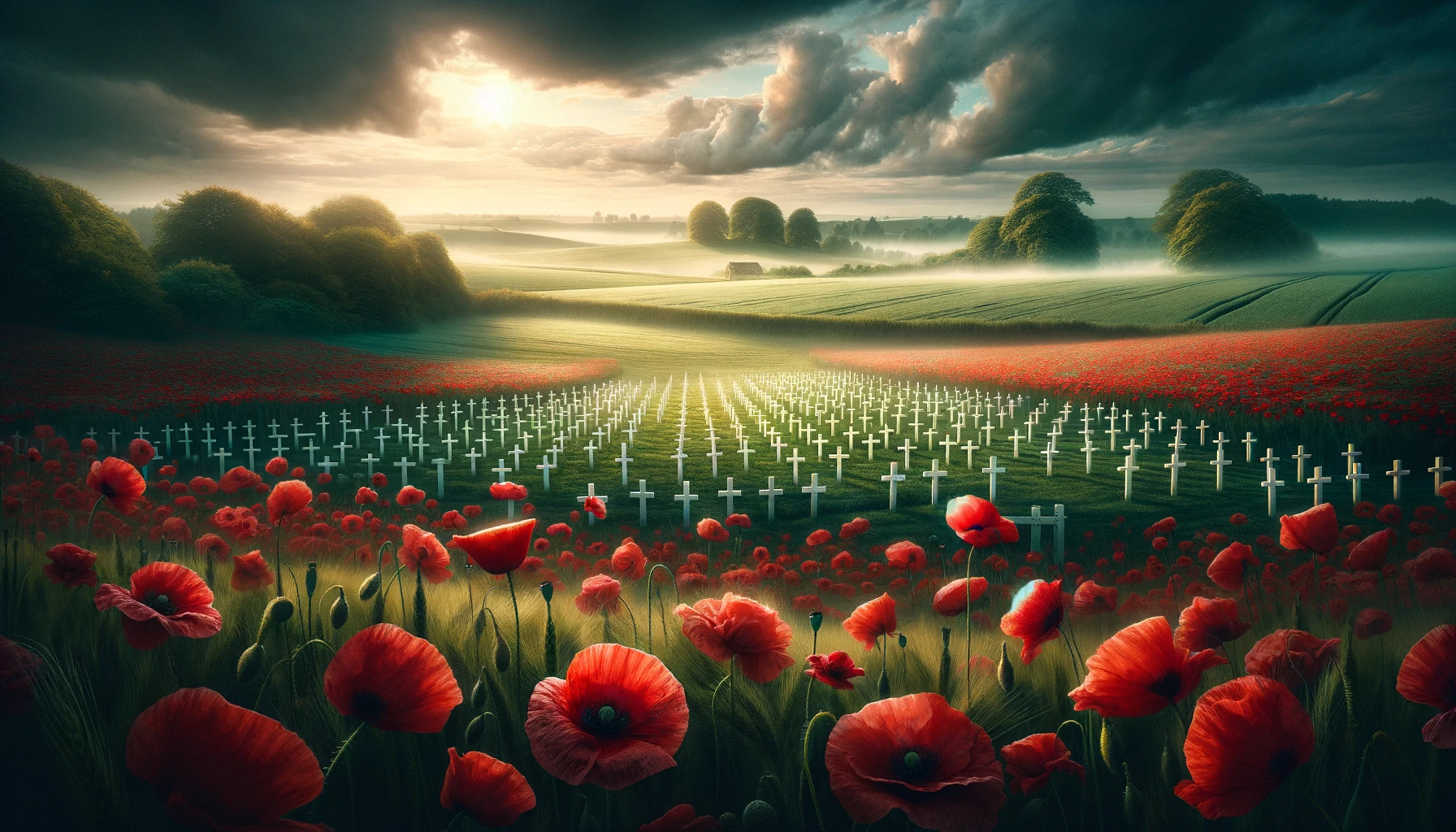Lest We Forget...

Remembering the past is what this post is about and on this November 11, 2023, I once again find myself thinking about wars past, wars present, and sadly, the wars to come. This year, in particular, there are two high profile wars going, one in Ukraine, and the other in Israel. It's hard to read about, or to watch, but over the years, I've come to believe that we need to reflect on the horrors of war because we need to understand that it is something dreadful; something to be avoided at all costs; something to be engaged in only as a last resort. And when all else fails, to engage in with the understanding that it is awful and horrible that we may find an end as quickly as possible.
There's an episode from the original Star Trek series called, "A Taste Of Armageddon." In that episode, Kirk, and his team, beam down to the planet Eminiar VII, a planet that is supposedly at war. Except that there are no bombs, no missiles, and no bullets. What they encounter is a war fought by computers, a prescient metaphor for today's remote-controlled drones and cyber warfare. Computers fight the war and those people who have been killed in the conflict willingly report to disintegration booths to be cleanly disposed of. This war has been going on for ages, but because it is so clean and tidy, people have forgotten about the horrors of war, and so the war persists.
That's what the words "Lest We Forget" are all about.
This sanitized, distant form of conflict, while reducing immediate human costs, also distances us from war's brutal realities. In our non-Star Trek world, advances in AI and robotics in military applications have further blurred the lines, raising ethical questions about the future of warfare.
Globally, conflicts continue to rage, differing in scale and impact, yet each carrying the same message of loss and despair. From the streets of Syria, to the Russian invasion of Ukraine, to the war in Israel, the specter of war remains a stark reality, challenging our notions of progress and humanity. That particular horseman is always with us.

War in the 21st century, at least for those of us living in North America, has become far too sanitized. We watch remote controlled drones surgically neutralizing enemy targets from thousands of miles away. Sure, we see clips on social media, but that stuff is all far away. And while our men and women die in foreign conflicts few of us actually understand, our politicians want to isolate us from the horrors those men and women actually face. In 2006, Stephen Harper, Canada's Prime Minister, sought to ban the media from displaying images of flag-draped coffins as dead soldiers returned home.
Lest We Forget...
In North America, our understanding of war has been predominantly shaped by our experiences in the World Wars. The end of WWII in 1945 marked not just a victory but a staggering loss of life - 68 million people, including over 40 million civilians. The contributions of various nations, often overshadowed by the narratives of major powers, deserve recognition. The Canadians at Dieppe, the Soviets at Auschwitz – each played a crucial role. The Holocaust, an unfathomable tragedy, stands as a testament to the depths of human cruelty, claiming nearly 6 million Jewish lives.
Take a moment to check out this Wikipedia entry. The numbers of lives lost are staggering.
The end of that war dragged on for months, ending in different parts of the world at different times. VE Day, or Victory in Europe day, was May 8, 1945. On August 6, 1945, the Americans dropped the first of two atomic bombs on the city of Hiroshima. The second was dropped three days later over Nagasaki on August 9 (we were given a reminder of this day with this year's movie, Oppenheimer). A few days later, on August 15, the Japanese surrendered a few days later. The official signing of the documents that ended World War II took place on September 2, 1945 aboard the battleship USS Missouri. A great many people were involved in the liberation of Europe against the Nazis and many more lives were lost before it all ended in August, including (lest we forget) many civilians.
1945 seems so long ago. I would not be born for another 15 years, and yet that time feels frighteningly close to me. Why care about those events of long ago, the younger readers might ask?
As we stand in 2023, these events of the past, as distant as they may seem, are frighteningly relevant. The rise of ideologies and political movements reminiscent of those that fueled the World Wars serves as a stark reminder of George Santayana's warning: "Those who cannot learn from history are doomed to repeat it."
The words "Lest We Forget", inscribed on cenotaphs worldwide, are not just a tribute to the fallen but a plea to remember and learn from the past. Our freedom, hard-earned through the sacrifices of countless individuals, remains fragile. The forces that once tore our world apart may lie dormant but are not extinguished. Dip into your social media feeds, or turn on a radio, or television. In forgetting, we risk their resurgence and the inevitable loss of more innocent lives.
I'd like to end this with a short poem by a gentleman named John McCrae, Lieutenant Colonel John McCrae, a doctor from Guelph, Ontario, who died in 1918, in another great war, the first World War. It seems somehow fitting to my discussion that people called it "the war to end all wars". Apparently, we hadn't learn the lessons of history well enough. McCrea penned what has become the anthem of remembrance in my country of Canada. The poppies we wear on Remembrance Day, on every November 11th, still blow across time.
In Flanders Fields (1915)
In Flanders fields the poppies blow
Between the crosses, row on row,
That mark our place; and in the sky
The larks, still bravely singing, fly
Scarce heard amid the guns below.
We are the Dead. Short days ago
We lived, felt dawn, saw sunset glow,
Loved and were loved, and now we lie,
In Flanders fields.
Take up our quarrel with the foe:
To you from failing hands we throw
The torch; be yours to hold it high.
If ye break faith with us who die
We shall not sleep, though poppies grow
In Flanders fields.

Lest We Forget...
